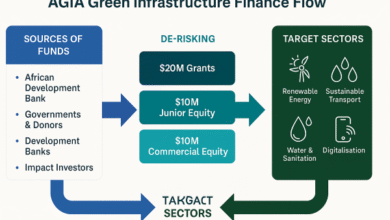Producers’ Rights: Why Catalogue Ownership is Africa’s New Music Goldmine

In today’s global music economy, African beats fuel the charts, but many of the continent’s producers and songwriters remain trapped in short-term contracts that strip them of long-term wealth. Catalogue Ownership, Akinyemi Ayinoluwa one of Nigeria’s foremost music lawyers, is ringing the alarm: “Rights must come before streams.”
The Economics Behind the Beat
Behind every Afrobeats hit is a producer or songwriter whose creativity powers the melody. Yet, too often, these back-end architects exchange their rights for a one-off payment. A $2,000 beat fee may sound like a breakthrough, but in the streaming and sync-driven era, that same record could generate hundreds of thousands of dollars in royalties over time.
Ayinoluwa illustrates with a real case: a young producer he represented was offered $50,000 for outright publishing rights in 2019. He nearly signed. Today, the song has generated over £500,000 in royalties — money he would never have seen had he given away ownership.
Why Ownership Matters
Music rights are the true currency of the industry. They exist in three layers:
- Master rights – who controls the sound recording.
- Publishing rights – ownership of lyrics and composition.
- Neighbouring rights – the performer’s related entitlements.
These rights fuel income streams ranging from royalties and sync fees to licensing deals and brand partnerships. Whoever holds them decides how, where, and for how long the music lives.
In much of Africa, however, traditional label contracts tilt heavily toward performers, sidelining producers and songwriters. Labels bankroll studio sessions and promotions but often demand catalogue ownership in return — leaving beatmakers with flat fees and no stake in a record’s future.
The Real Estate Analogy: Music as Property
Ayinoluwa likens music rights to real estate:
“Music is property. Just like land, it can appreciate, be leased, licensed, or inherited. When you give up ownership, you give up rent for life.”
For African producers, this insight is critical. Catalogues are not just artistic legacies — they are appreciating assets, often passed down to families or monetized through catalog sales, a practice already dominating in the US and Europe.
The Way Forward: Knowledge + Negotiation
For Africa’s creative economy to mature, Ayinoluwa argues, producers and songwriters must master the music value chain:
- Understand publishing and licensing.
- Register with Performance Rights Organisations (PROs) and Collective Management Organisations (CMOs).
- Learn how streaming royalties are split.
- Negotiate beyond upfront fees — insist on points, royalties, or partial rights retention.
As global interest in Afrobeats surges, the winners will be the creators who understand both their art and its economics.
BRANDECONOMY Insight
The push for catalogue ownership is not just about fairness. It is about building generational wealth for Africa’s creative backbone. If producers and songwriters remain price-takers at the bottom of the value chain, the continent risks exporting its sound but importing its wealth gap.
By reframing catalogues as property, Ayinoluwa is challenging Africa’s creative industry to rethink its structures. And as streaming, brand syncs, and licensing grow into billion-dollar opportunities, this battle for rights is shaping up to be Africa’s next big entertainment business frontier.










